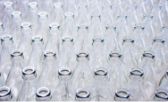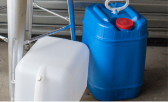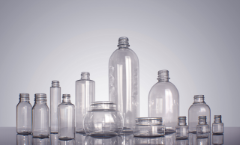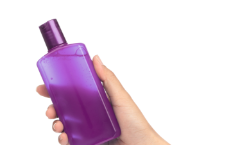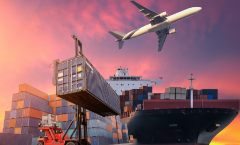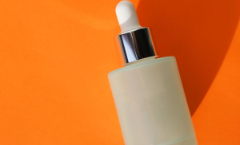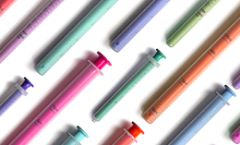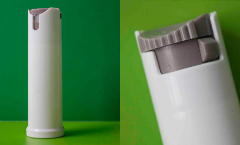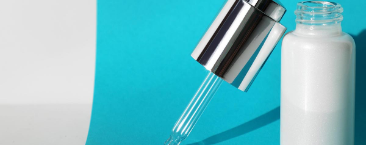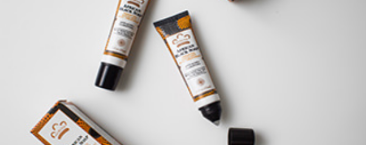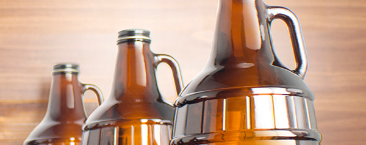How are Plastic Bottles Recycled?
Plastic bottles make life so much easier. They're lightweight and easy to hold, and they're also strong and hard to break. A plastic bottle is the best way to contain and carry many kinds of liquid, from water and soft drinks to oil to household cleaners and baby formula. The plastic bottle is a great invention, but what happens to it when that handy container is empty?
How Bottles Can Hurt the Environment
Since the 1970s, people who care about the environment and the health of our planet have been worried about how to dispose of plastic once it's been used. Today, about 60 million water bottles are thrown away every day in America, and it can take up to 700 years for just one plastic bottle to break down in a process called biodegrading, which is also the process that happens when a piece of fruit rots. These bottles fill up our landfills, and we need landfill space to bury trash that can't be recycled. Throwing away plastic also hurts the environment in other ways. As plastic decays, it can give off chemicals that get into our water and air and can make people, plants, and animals sick.
To solve these problems, people have worked together to develop a process to recycle plastic bottles and convert them into other useful items, including clothes, furniture, fences, and new plastic bottles, bags, and containers.
The Process of Recycling Plastic
Recycling takes many steps. First, the bottles have to be collected from homes, businesses, and other sites. Then, every plastic bottle must be separated from metal, glass, and other things that people put into recycle bins. The plastic bottles are also sorted by the type of plastic they're made from. Then, the bottles are cleaned remove any food, liquid, or chemical residue.
Next, all of the bottles are ground up and shredded into flakes. Finally, they are melted down and formed into small pellets, each about the size of a grain of rice. The pellets are bundled up and sold to companies that can be melt them and make them into many different products. Just think of all of the plastic toys, tools, electronic gadgets, and other plastic things in your own home. Many of these are made with recycled plastic.
Why Should We Recycle?
There are many reasons to recycle plastic bottles. For starters, recycling reduces the pollution that can come from the chemicals used to make these bottles. Recycling also helps cut down on the amount of trash thrown into landfills, so our garbage doesn't take up as much space. Recycling also creates jobs for people who collect recyclable things and work at places that turn them into new materials.
Recycling is good for the economy and the environment, and it's easy to do. All you have to do is remember to throw things into the right bins when you're done with them. But you can also do more, especially if places that you usually spend time don't have recycle bins. Students can talk to their school board, principal, and teachers about setting up recycling programs at school. You can also organize can and bottle drives to pick up litter and sort out recyclables in parks and along streets. And you can make signs to spread the word that recycling is easy and important to do.
- Plastic Water Bottles Should No Longer Be a Wasted Resource: Learn about the environmental problems associated with plastic bottles and possible solutions.
- What They Become: Find out about the many useful products and items that are created from recycled plastic bottles.
- Recycle for Your Community: What Does it Get Turned Into? Bottles become clothing, furniture, and much more when people practice recycling.
- The Environment Recycling: Here's an easy explanation of the recycling process intended for children.
- Recycling Plastics Is as Easy as 1, 2, 3, 4, 5, 6, 7: Plastic comes in many different types, and most of them can be recycled into different things.
- Recycling Plastics: New Recycling Technology and Biodegradable Polymer Development: Scientists are always working to make the process of recycling better.
- General Recycling Facts: This site looks at important facts about recycling plastic bottles and other things.
- What Happens to All That Plastic? This scholarly article describes the life of a piece of plastic.
- The Story of a Recycled Bottle (video): Ever wonder how a bottle gets recycled? Watch this video.
- One More Generation Empowers Kids to Save the Planet (video): Kids 12 to 14 are the teachers in this video meant to explain the importance of recycling to younger kids.
- Education Station (video): This video takes you through the process of recycling plastic bottles and many other things.
- Recycling Plastics: What Do You Need to Know About Recycling Plastics? Here's a site that provides in-depth information about recycling plastic bottles and other plastic items.
- Plastics Recycling: Learn about the five steps that plastic goes through before it can become something new.
- Recycling Plastics 101: This article includes a chart of the different types of plastics, their identification codes, and how they apply to recycling.
- Why Can't All Plastics Be Recycled? In some places, you can recycle any kind of plastic, but in others, it's important to pay attention to the symbols on each thing to know if it's recyclable or not.
- Plastic Water Bottles Impose Health and Environmental Risks: What happens to all of our empty plastic bottles? The answer isn't good for people or the environment.
- What Kids Can Do: Find a wealth of ways that kids can get involved in recycling in their schools and communities.
- The Violent Afterlife of a Recycled Plastic Bottle: What happens after you throw a plastic bottle into a recycle bin? Find out where it goes and how it gets used.
- How Plastic Bottles Are Recycled (video): Watch how old plastic bottles are prepared to become new things here.
- Company Turning Billions of Plastic Bottles Into Clothes: Yesterday's drink container could be tomorrow's shirt material, thanks to recycling.






